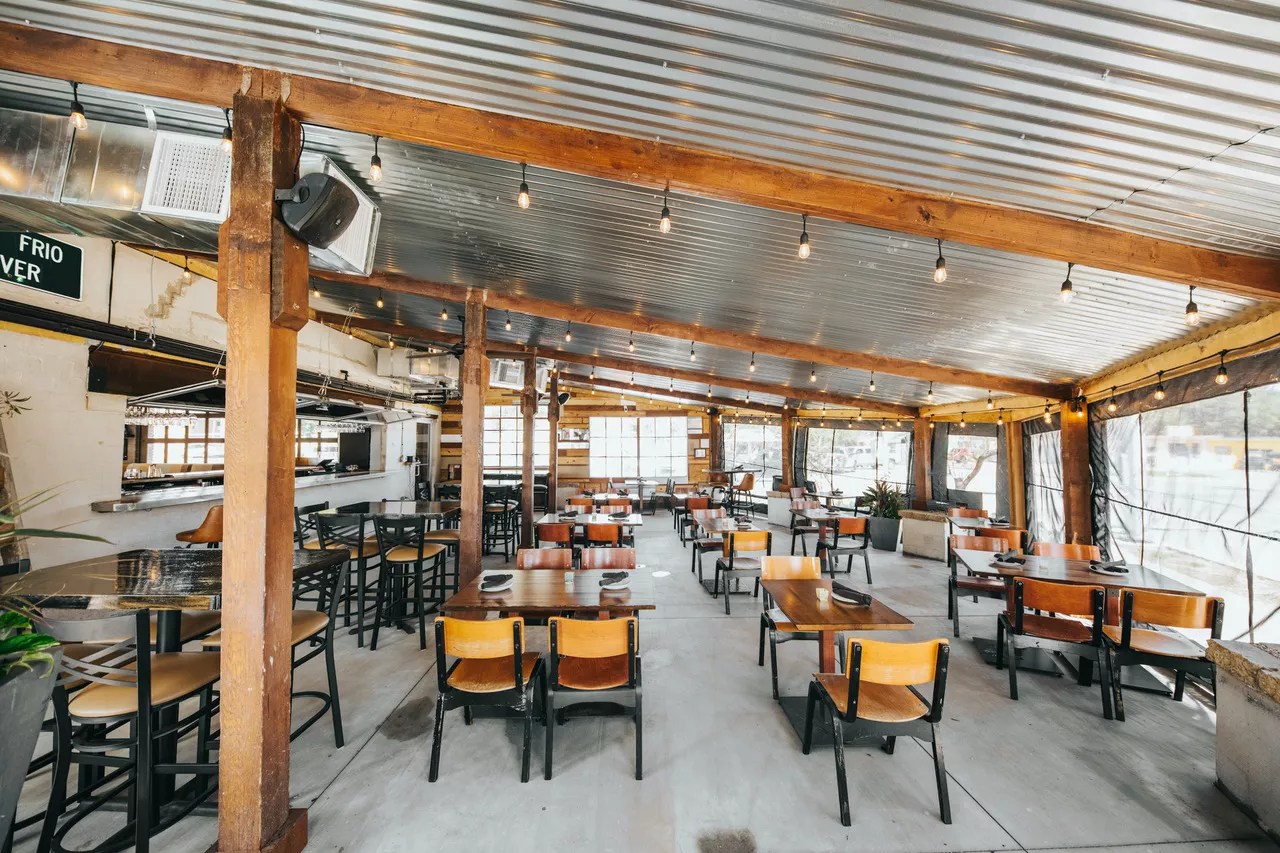
Kathy Tran

Audio By Carbonatix
While restaurants usually have to have one parking spot per 100 or 200 square feet of usable space, that’s now not the case for their patio areas, at least for a little while.
The Dallas City Council approved a resolution Wednesday temporarily authorizing covered, unenclosed patio areas to to be allowed at restaurants and bars without required parking.
This authorization holds until April 30, 2021, or 14 days after Gov. Greg Abbott’s occupancy limits are removed, whichever is first. The resolution can be renewed in the spring, should the council say it’s needed.
“Today’s resolution is another way that this council is addressing the city’s antiquated parking code,” council member Chad West said in the meeting. “We know it’s old. We know it needs to be updated. This is one small way we as council members can try to help out our small businesses.”
Council member David Blewett, who put together the resolution with West, noted more people are dining outside and it’s important that the city make it easier for restaurants to allow that.
“Here we are, month eight [of the pandemic]. … What we learned is being outside is a good thing, spacing is a good thing,” he said. “This concept allows our restaurants and possibly our bars … to be able to utilize their outside space.”
A few council members mentioned having an innovative approach to supporting businesses during the pandemic. Maybe it is, but as West noted, it’s also addressing parking rules that may not work for today or for every neighborhood. Take the Bishop Arts District: Talk to many employees and customers there, and you’ll find they walked there.
But not everyone walks, and some neighbors do have doubts about the resolution, which could result in more cars lining residential streets.
“Essentially this is temporary,” West says. “This is a COVID recovery method; restaurants have reduced occupancy right now because of COVID. This will allow them to get them a little bit back up to where it was pre-COVID.
“Before there is any movement to make these parking reductions permanent, there needs to be a lot more community engagement.”
For restaurateur Brooks Anderson, this move is a good one for restaurants that are expanding their outdoor capacities, and it’s long overdue, even without the pandemic.
“Forcing restaurants to park their covered patios is a bit of a relic of the past, and separate, apart from COVID, it’s good policy to lessen the parking requirements, in lieu of the people who use Lift, Uber, and people who are moving to the districts they want to play,” says Anderson, who operates Hillside Tavern in East Dallas, Boulevardier in the Bishop Arts District, Veritas Wine Room on Knox-Henderson and Rapscallion on Lower Greenville.
For now, it can be a relief for restaurateurs maneuvering pivots to keep their businesses afloat during the coronavirus pandemic.
“This is for all patios,” West said. “It would cover current patios that are in existence, they could be covered with a permanent structure. They might have to park it in April.”
This resolution takes effect immediately. Temporary, covered, unenclosed outdoor patio areas may not operate between the hours of midnight at 7 a.m.
An Update for Temporary Parklets
Later in Wednesday’s meeting, the council also approved amending the temporary parklet program to include funding for approved applicants. The city will secure standardized plans for parklet design and administer construction grants up to $150,000.
City staff anticipates most of these would be restaurants – so far the 16 approved (with seven more on deck) businesses with temporary parklets are predominately food establishments. For West, he’s looking to make it possible to make temporary parklets permanent.
An item will go in front of the council’s transportation committee in December to discuss permanent parklets.
“I’m going to tee that up to be a very, very good conversation,” West says. “I would really like to see some permanency: I’d like to see the temporary [parklets] become permanent, and I’d like to see how that can be done.”